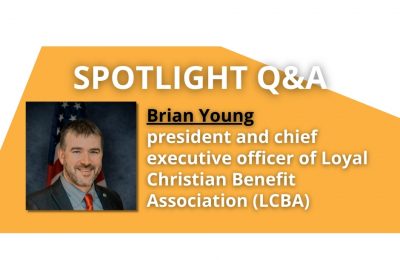A business transition and/or sale plan are critical to putting your goals and priorities in place to help ensure a successful and profitable “exit strategy” process in the future. Here, Gene Crescente, senior vice president at PNC Wealth Management, answers some key questions about why it is important to have a clearly defined strategy in place.
Without a clearly defined “exit strategy” in place, you may be leaving your personal and financial future to chance. How do you know when the time is right?
You don’t! Waiting until you feel the time is right will inevitably leave you scrambling when an interesting offer comes in … or when some life-altering event occurs. The best way to plan for a business exit is to continually incorporate that into your everyday business strategy. A well-run business is many things, including one that someone will pay a premium for because you have all of the pieces in place for it to run well without you there. And if your business is not ready to transition, it’s likely that your personal planning also will be insufficient to meet your needs.
What are the first of next steps you should take?
Take a critical look at your operation. Look at each area of the business (sales, operations, office functions) and ask yourself “what will happen if I am not here… can each department function for an extended period of time?” If not, do you have the right people in place and have you given them the proper training and actual authority to run their area.
On the personal side, look at your finances. Are there enough assets to support your (and your family’s) lifestyle without the business? If not, how much would you need to accumulate to reach that point? That’s a shorthand way of figuring out what you would need to net from the business, and it should help identify and drive the changes that should be implemented.
What information do you need to start the business transition process?
To properly plan, we need to look at both the business and your personal situation. You should have available all of the pertinent business documents (three years of financials, current year projections, business form documentation, etc.) along with any other important information (for example, ownership structure, notes/loans payable, expansion plans, etc.).
On your personal side, you should pull out whatever estate plans you have in place, along with your investment account statements (including a 401(k) in the business, if you have one).
Finally, you should have an “idea” number. That is what amount would I need to have in investments to make my idea of my next phase work for me and my family. It does not need to be exact; it’s there to set the table for the discussions to come.
What are some succession planning best practices?
The best practice when looking at succession planning is to make it part of your ongoing business strategy, no matter if your plan is to leave/sell the business to your family or sell it to someone else. If you always have an eye out for “what does this business need to run properly and succeed without me,” you’ll go a long way towards developing a firm that is aiming to maximize its value.
How and when should you include financial advisers in the process? Financial advisers are a critical part of getting your personal finances in shape so you can set yourself up for not being involved in the business, living the lifestyle
you want and taking care of your family. You should consider working with a financial adviser who integrates financial planning into their offering, as investing without a plan for the future will probably not achieve your goals. Ideally, you should be working with a firm such as this throughout your working years. If not, now is a great time to start.
Is there anything you would like to add?
Business succession planning encompasses many things, but the most important thing to remember is that it is a process. A business transition that is hammered out in an afternoon will likely be unsatisfying to all involved, but one that is part of your ongoing business strategy and that is well prepared for will likely meet your business, personal and family needs.
To learn more on business succession planning, please review our website https://www.pnc.com/en/corporate-and- institutional/commercial-banking/business- succession-planning-process.html.













